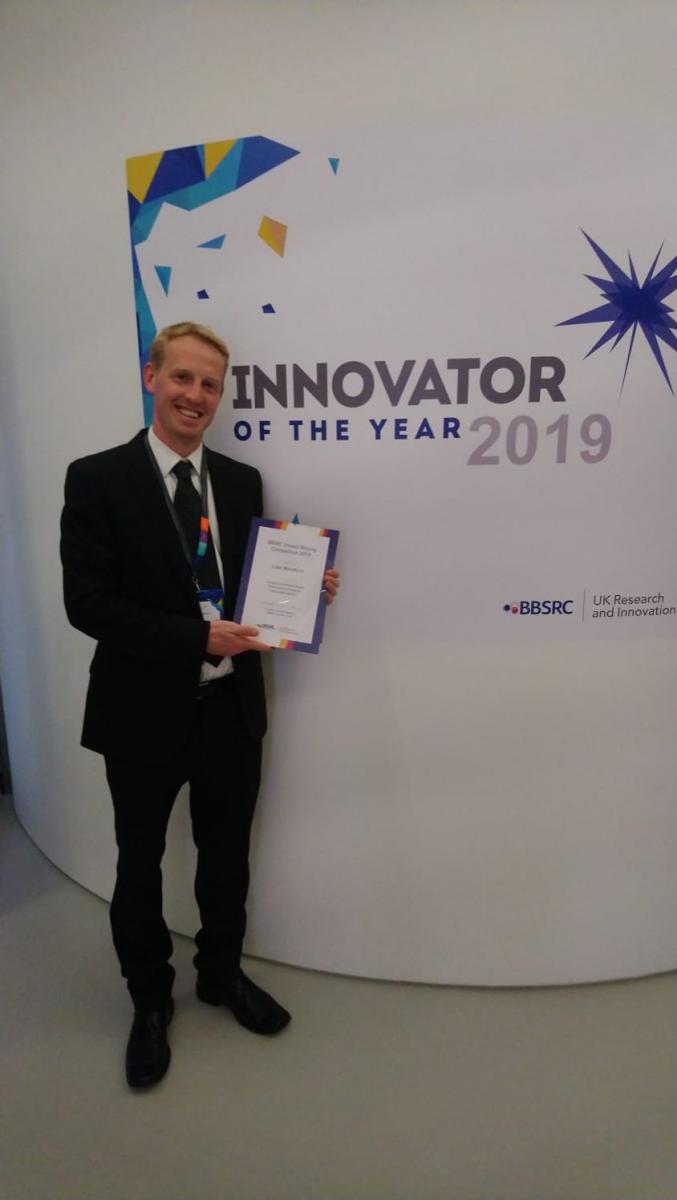The winner of the newly launched UKRI BBSRC Impact Writing Competition 2019 is EASTBIO fourth-year PhD student Luke Woodford with "Using Coordinated Varroa Treatments to Improve Honey Bee Health. Luke is currently completing his PhD on "Healthy honeybees: The biology and affordable control of varroa and deformed wings virus" at the University of St Andrews, supervised by Dr David Evans.
His case study was selected as winner of the Impact Writing Competition 2019.
 Varroa destructor is a parasitic mite that lives on the bodies of honey bees, feeding on their fat and haemolymph (a bloodlike substance in invertebrates). The mite was originally a parasite of the Asian honey bee, Apis cerana, before jumping host to the European honey bee, Apis mellifera. As humans have moved colonies of European honey bees around the world, they have facilitated the spread of the mite, which is now found on every large landmass in the world, except Australia. But it isn’t only the mite itself that presents a challenge for beekeepers worldwide: Varroa acts as a vector for several highly pathogenic viruses, most notably Deformed Wing Virus (DWV). Together, the mite and the virus are responsible for over 25% of colony losses every year and represent one of the biggest threats to honey bee survival on a global scale.
Varroa destructor is a parasitic mite that lives on the bodies of honey bees, feeding on their fat and haemolymph (a bloodlike substance in invertebrates). The mite was originally a parasite of the Asian honey bee, Apis cerana, before jumping host to the European honey bee, Apis mellifera. As humans have moved colonies of European honey bees around the world, they have facilitated the spread of the mite, which is now found on every large landmass in the world, except Australia. But it isn’t only the mite itself that presents a challenge for beekeepers worldwide: Varroa acts as a vector for several highly pathogenic viruses, most notably Deformed Wing Virus (DWV). Together, the mite and the virus are responsible for over 25% of colony losses every year and represent one of the biggest threats to honey bee survival on a global scale.
Read the full case study here.
Prior to starting his PhD with a UKRI BBSRC EASTBIO studentship, Luke completed a BSc (HONS) in Biochemistry at Heriot Watt University. After graduating, he spent five years working for a small biotech company designing and optimising a disease diagnostic platform. He then completed an MRes in Ecology and Environmental Biology at the University of Glasgow before moving to St Andrews and starting his projects looking at honey bee viruses.











